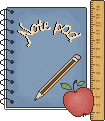One of my goals for next year is to begin using math centers. I'd like to make this type of learning a choice for my students in order to gain proficiency in our district's math targets (standards). I'll call it Target Practice. Incorporating math centers would be supplemental to using the Everyday Math Program.
My biggest question to anybody who reads this and who does use math centers is:
How do you organize and manage it all?
Here are other questions I have:
- What does the research say?
- What professional books are out there to assist me? Do you have a favorite?
I'd love any you can send my way. Thank you so much!
Pin It



I have tried to do Math Stations on my own, but I found it overwhelming. This summer I bought Debbie Diller's Math Work Station book. Oh. My. Goodness. It is fabulous. I haven't finished reading it yet, but it tells you how to set them up, manage, and give you ideas to actually put IN the stations depeneding on what you are studying. I HIGHLY recommend it!
ReplyDelete-Megan
First Grade Magic
Thank you so much for the tip! I really appreciate it. I'll look into the book.
DeleteI completely agree. This book also has great pictures to help you clean out our math closets and set everything up.
DeleteYes, I agree with Megan, Debbie Diller's Math Work Station book is a great place to start. No matter what series you are using, math stations are a great way to give your students a chance to practice and explore with the skills you have already taught them. Don't be afraid to adapt Debbie's ideas to suit your classroom and schedule. The students benefit by learning from each other. And you can work wih a small group or wander the room and do some informal assessing and discover what skills you might need to revisit with individuals or the whole group. p.s. I'm glad you blogged today, I discovered your blog and have been anxious to read your next blog! I teach 1st in Kansas and am curious about your classroom in Maine.lprosser@usd422.org
ReplyDelete-Laura
Thank you. Debbie Diller's book looks like just what I need!
DeleteHere's another vote for the Debbie Diller book. I had tried one year kind of making up my own ideas (based loosely on the Daily Five), then I came across her book and I LOVE the organization of it! She gives many suggestions for including in the stations, but emphasizes that you can use whatever seems to fit. My district uses Everyday Math, which incorporates lots of games. Those games go into my stations, as well as a few purchased games, and some things from TPT. I don't have my boxes set up completely by strand, as described in the book. Instead I might have 2-3 boxes on one strand, based on what we're working on. For instance, in the spring of first grade I had 3 addition boxes (one working on doubles facts, one working on sums of ten, and one working on addition in general). Best of all, this arrangement made it easy for me to pull kids for differentiated math groups, which was a necessity with my class last year. I can't recommend it enough!
ReplyDeleteI really appreciate your reply. This gives me something concrete to go on. Thank you!
DeleteYup! Debbie Diller for sure. Guided Math by Laney Sammons might also be helpful. I've only just started it, but she writes about teaching math in ways similar to Fountas and Pinnell's guided reading.
ReplyDelete❀Barbara❀
Grade ONEderful
Ruby Slippers Blog Designs
PS I have a drama linky going on in case you're interested.
Hi Dee!
ReplyDeleteI was going to tell you to take a look at Debbie Diller's Math Stations book, but it looks like several others have already recommended it to you. I enjoy your blog and am giving you the Liebster Award. Please stop by my blog to pick it up.
Connie:)
www.welcometofirstgraderoom5.blogspot.com
Hi Dee, thanks for stopping by my blog. I adore your blog's layout. The plaid and Scottish Terrier is adorable. I'm so happy to find fellow Maine bloggers! I'd love to find more people who are from Maine as well! If you know of any send them my way!
ReplyDeleteLarissa
Teaching Is Love